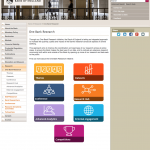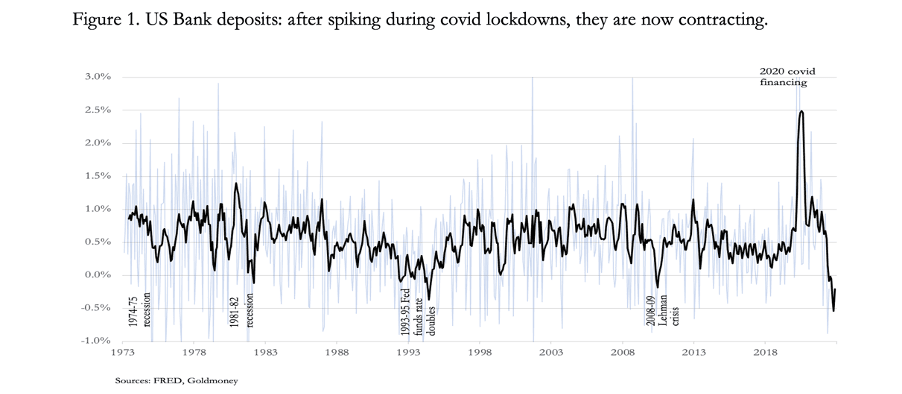
The Bank of England launched its “One Bank Research” programme last year. They write:
Through our One Bank Research initiative, the Bank of England is taking an integrated approach to increase the quantity, quality and impact of the Bank’s research across all aspects of central banking.
We hoped they would challenge the orthodoxy with a research revolution. Alas, so far there is not much sign of the progress we would like. Indeed, with a proposal to abolish cash and implement negative interest rates, the need for a paradigm shift in economic thought is ever more pressing.
Here are five areas for research which would cut to the heart of the problem of central banking and fiat money today:
- Risk, risk modelling and incentives – Inadequate risk modelling follows as a consequence of the moral hazard implicit in the system. VAR-based risk models have repeatedly been shown inadequate yet they legitimize under-provisioning for losses, thus increasing risk and inflating profits. Leverage ratio regulation suffers from the epistemological problem of the social sciences so it is likely to fail. The accounting provisions of IFRS in relation to mark-to-market and loan losses further promote risk-taking and instability. Basel capital adequacy rules failed in the past and will fail again. Authors: Kevin Dowd, Gordon Kerr, John Butler.
- Capital-based macroeconomics and the boom-bust cycle – CPI targeting is dangerously misplaced: consumer prices are the final signal at the end of a long production chain. Monetary fluctuations have material effects on the real structure of prices and capital. Prices become detached from underlying realities such as resource availability, technology and consumer preferences. Interest rate manipulation by authority disco-ordinates the economy in time by sending false signals about preferences for saving, borrowing, consumption and investment. Authors: Jesús Huerta de Soto, Detlev Schlichter, John Butler, Roger Garrison, Kevin Dowd, Mises, Hayek, Steve Horwitz.
- Money creation and the social process – Money is not neutral: changes in monetary policy have real distributive affects which may explain the UK’s severe economic imbalances across sectors and regions. Even in environments of low CPI, those distributive effects can undermine faith in the market process over the long term. Authors: Keynes, Mises, Hayek, Jörg Guido Hülsmann, Jesús Huerta de Soto.
- Economic expectations, big players and financial stability – Big players have market power, they are insensitive to the discipline of profit and loss and their actions are discretionary. Big players promote herding and instability. Central banks are the stereotypical big player. Free banking with commodity money was historically more stable than fiat money and central banking. Authors: Roger Koppl, George Selgin, Kevin Dowd, Alan Greenspan.
- Knowledge and method in the social sciences – The information necessary to support economic planning is not available. It is distributed in the minds of economic actors. It is subjective, practical, tacit, non-verbal and often time-variant. Much of it remains undiscovered at any moment and regulation hampers information discovery. Only the price system reveals the preferences of billions of individuals working in dynamic systems of social co-operation. The role of the entrepreneur is to discover how best to combine the means of production to meet consumer demand. Social processes are therefore not susceptible to contemporary methods. Authors: Jesús Huerta de Soto, Israel Kirzner, Mises, Hayek, Kevin Dowd.
The Bank might also investigate Gross Domestic Output (measuring all stages of production), definitions of money and alternative currencies.
We are ready to help.





So, the Bank is the problem then. Not the solution. Votes. Turkeys. Christmas. Don’t.
I gave up on the OneBank agenda 14 words into their opening statement: the key word is “integrated”. No need to read on beyond that.
Like Steve, I was hoping for something a little more radical, eg, like openness toward a research revolution – not that my hopes were that high to begin with. Goodness knows they need it or we wouldn’t be in this mess. More of the same isn’t going to help.
But, yes, we are ready to help … if they will let us.
PS/ Steve’s agenda is far better.